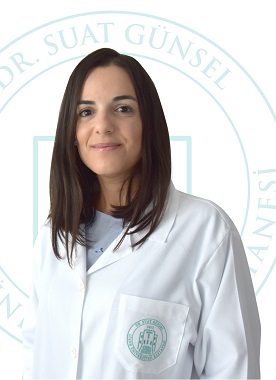
International Epilepsy Day is a special event which promotes awareness of epilepsy in more than 120 countries each year. On the second Monday of February, people join together for various activities in order to highlight the problems faced by people with epilepsy, their families and caregivers.
What is epilepsy? What should we do if a patient has a seizure? What are the treatment methods? Dr. Suat Günsel University of Kyrenia Hospital Neurology Specialist Pınar Gelener Arsal MD., made a statement on all of these questions:
Epilepsy is a chronic medical condition that manifests itself with seizures, where the individual can continue his normal life after the seizures. In 60-70% of epilepsy patients, seizures can be controlled with medications and in this way it is possible for the person to continue their work and maintain a healthy daily life. These patients can have a normal life span, continue their education, get married and have children.
Seizures of epilepsy may involve repeated contractions, to blank out or stare, loss of muscle strength, loss of awareness, making lip-smacking or chewing movements, sudden mood swings, unresponsiveness and repetitive movements that do not serve a purpose. Epileptic auras may appear as a symptom of a seizure. Auras often manifests as; deja vu (the feeling that one has lived through the present situation before), jamais vu ( the experience of being unfamiliar with a person or situation), ilusions of sound, sight, taste and smell, loss of sight and disturbances, repetitive and compelling thoughts, strange emotions, fear, panic, screaming, dizziness, headache, nausea, numbness and tingling.
Facts about epilepsy:
- Epilepsy is not contagious.
- Epilepsy is not a rare disease.
- Every epilepsy patient experiences different types of epileptic seizure.
- Epilepsy can be treated.
- Epileptic patients can work in critical tasks requiring high responsibility and risk.
- There is no physical restriction for most patients with epilepsy.
What should be done and what should not be done when a patient is having a seizure:
- Do not restrain the person’s movements.
- Do not give mouth-to-mouth resuscitation or apply cardiac massage.
- Do not put anything in the person’s mouth. Do not give water or pills.
- Do not pour cold water on the person.
- You should roll the person onto their side to prevent injury.
- If the seizure is prolonged, a health personnel must be informed immediately.